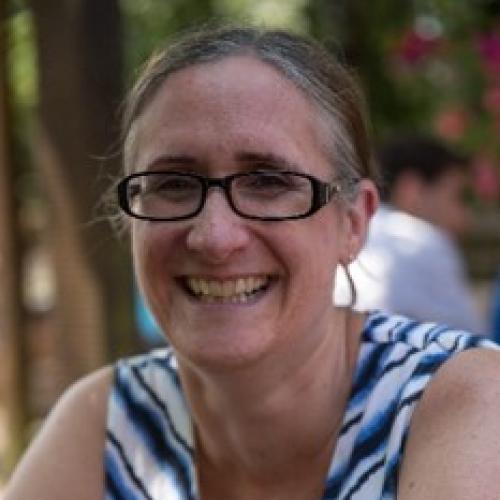
Jennifer Cyran
Jenni obtained her BSc in Anatomical Sciences from the University of Manchester. She then joined GlaxoWellcome just prior to it becoming GlaxoSmithKline. Jenni has spent most of her career in the field of high throughput cellular assay development and joined the world of protein degradation in 2016.
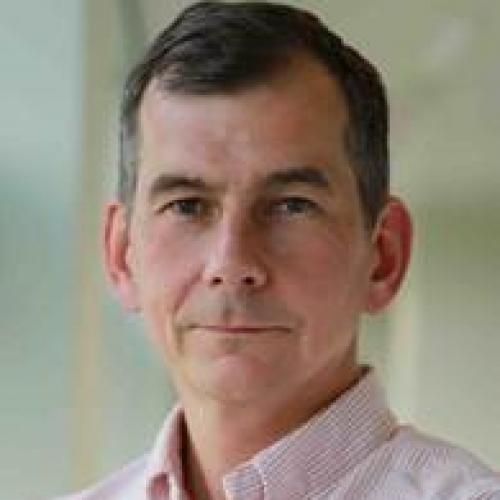
Ian Churcher
Ian joined Amphista Therapeutics as Chief Scientific Officer in 2020 where he leads a portfolio of projects focused on the development of next generation approaches to targeted protein degradation. Ian was one of the pioneers of the application of targeted protein degradation to drug discovery as Head of the Protein Degradation Discovery Performance Unit at GSK from 2012 including an extensive collaboration with Prof Craig Crews (Yale). Ian built a team which demonstrated the viability of the VHL-recruiting PROTAC strategy and advanced a portfolio of projects from early proof of degradation through to clinic-enabling studies. During a career in pharma at Merck & GSK, Ian led a range of discovery projects across many therapy areas from target validation through to lead optimisation and clinical entry as well as a number of applications of novel technology to drug discovery. More recently, Ian was SVP Drug Discovery at artificial intelligence biotech BenevolentAI where his team applied novel AI methods to tackling a series of drug discovery challenges across a portfolio of target identification and chemical optimisation projects.
Ian holds an MA and D.Phil. in Chemistry from the University of Oxford where he was also Visiting Professor in the Department of Chemistry.
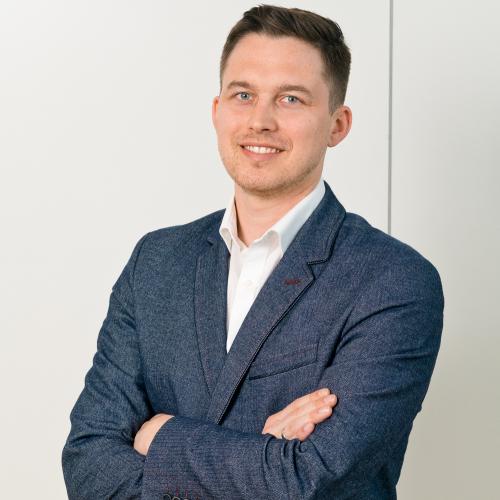
Georg Winter
Georg Winter, PhD, obtained his degree from the Medical University of Vienna, working on elucidating the mechanism of action of anti-neoplastic drugs under the supervision of Prof. Giulio Superti-Furga. He specialized on proteomics- as well as chemical genetics approaches to identify drug resistance mechanisms and synergistic drug combinations. He continued his training in chemical biology, working as a postdoctoral fellow with Dr. James Bradner the Dana Farber Cancer Institute/Harvard Medical School. Supported by an EMBO fellowship, he innovated the first generalizable pharmacologic solution to in vivo target protein degradation (Winter et al., Science 2015). He was recruited as a CeMM Principal Investigator in June 2016 where his research is now focused on using the unique molecular pharmacology of targeted protein degradation to understand and disrupt fundamental principles of transcription and gene control aberrantly regulated in human cancers. Georg Winter (co-) authored 35 manuscripts including publications in Science, Nature, Nature Chemical Biology, Nature Genetics, Elife and Molecular Cell. His interdisciplinary research lab consists of 6 Postdocs, 4 graduate students and 3 technical assistants trained in molecular biology, organic chemistry and computational biology, and is supported by several national and international grants and fellowships including an ERC Starting Grant. Dr. Winter’s contribution to the field of targeted protein degradation was acknowledged via multiple prices and awards, including the prestigious Eppendorf Award 2019 and the Elisabeth Lutz Award of the Austrian Academy of Sciences.
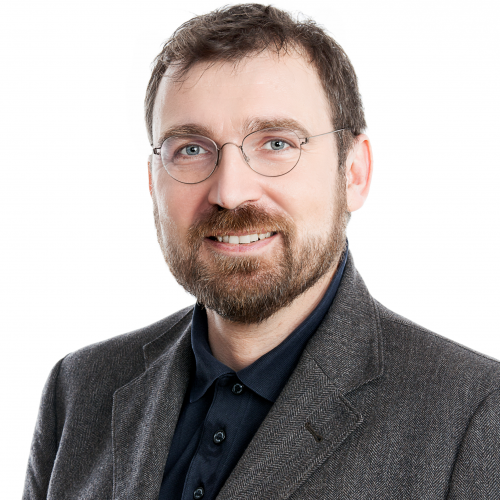
Dirk Trauner
Dirk Trauner was born and raised in Linz, Austria, studied biology and chemistry at the University of Vienna, and received his undergraduate degree in chemistry from the Free University, Berlin. He then pursued graduate studies in chemistry under the direction of Prof. Johann Mulzer, with whom he moved to the University of Frankfurt and then back to Vienna where he obtained his Ph.D. Following a glorious stint in the Austrian Army, he became a postdoctoral fellow with Prof. Samuel J. Danishefsky at the Memorial Sloan-Kettering Cancer Center. After two great years in New York City, Dr. Trauner joined the Department of Chemistry at the University of California, Berkeley, where he rose through the ranks to become an Associate Professor of chemistry (with tenure) and a member of the Lawrence Berkeley National Laboratory. In 2008, he moved to the University of Munich as a Prfesser of Chemistry and Chemical Genetics. In the Spring of 2017 he returned to the United States as the Janice Cutler Chair in Chemistry at New York University (Department of Chemistry). He is also an Adjunct Professor of Neuroscience at the NYU Langone School of Medicine, a member of the Neuroscience Institute and of the Perlmutter Cancer Center.
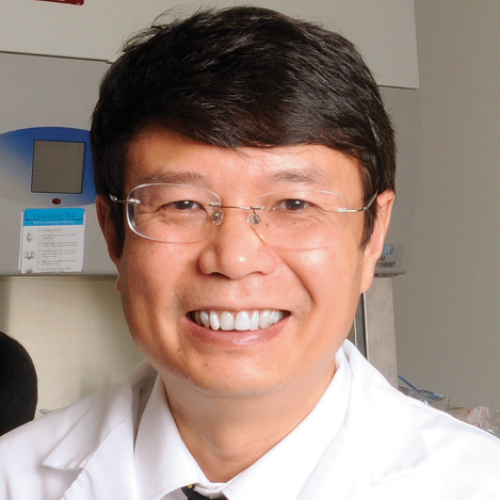
Daohong Zhou
Prof. Daohong Zhou is a Professor in the Department of Pharmacodynamics at the College of Pharmacy and a Professor in the Department of Radiation Oncology at the College of Medicine, University of Florida (UF) at Gainesville. He serves as the Associate Director for Translation and Drug Development and the Harry E. Innes Endowed Professor of Cancer Research at the UF Health Cancer Center. His research has led to the discovery of the first potent and broad-spectrum senolytic agent, ABT263-a dual BCL-Xl and BCL-2 inhibitor, that can selectively kill senescent cells to rejuvenate both prematurely senescent tissue stem cells induced by radiation and these in normally aged mice (Chang J et al. Nat Med, 22: 78-83, 2016). This discovery may lead to new therapeutics for various age-related diseases and the side effects induced by chemotherapy and radiation. More recently, he developed several proteolysis targeting chimeras (PROTACs) that can target Bcl-xl and other proteins of interest for degradation via the ubiquitination and proteasome system. He found that Bcl-xl PROTACs can selectively induce Bcl-xl degradation in senescent cells and various cancer cells but not in platelets, suggesting that Bcl-xl PROTACs have the potential to be developed as a better senolytic and anticancer agent than ABT263 by not causing thrombocytopenia. Using the PROTAC drug development platform, he is developing additional specific antitumor and better senolytic agents (Khan S et al. Nat Med, 25: 1938-1947, 2020; He Y et al. Nat Commun, 11: 1996, 2020).
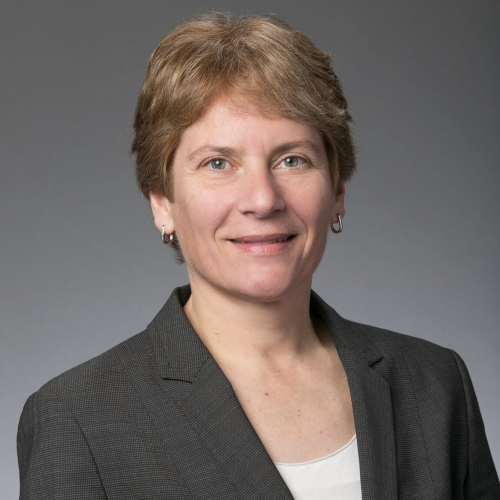
Carolyn Bertozzi
Carolyn Bertozzi is the Baker Family Director of Stanford ChEM-H and the Anne T. and Robert M. Bass Professor of Humanities and Sciences in the Department of Chemistry at Stanford University. She is also an Investigator of the Howard Hughes Medical Institute. Her research focuses on profiling changes in cell surface glycosylation associated with cancer, inflammation and infection, and exploiting this information for development of diagnostic and therapeutic approaches, most recently in the area of immuno-oncology. She is an elected member of the National Academy of Medicine, the National Academy of Sciences, and the American Academy of Arts and Sciences. She also has been awarded the Lemelson-MIT Prize, a MacArthur Foundation Fellowship, the Chemistry for the Future Solvay Prize, among many others.
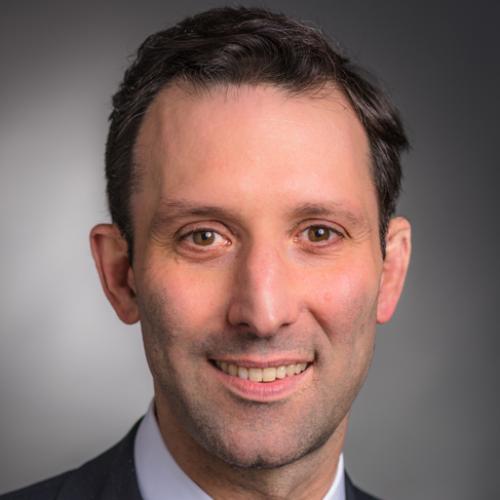
Benjamin Ebert
Dr. Benjamin Ebert is the George P. Canellos, MD, and Jean S. Canellos Professor of Medicine at Harvard Medical School, Chair of Medical Oncology at the Dana-Farber Cancer Institute, a Howard Hughes Medical Institute Investigator, and an Institute Member of the Broad Institute.
Dr. Ebert is an elected member of the National Academy of Medicine, the American Society for Clinical Investigation and the Association of American Physicians. He served as President of the American Society for Clinical Investigation. His awards include the Till and McCollough Award from the International Society of Experimental Hematopoiesis, the William Dameshek Prize from the American Society of Hematology, the Meyenburg Prize, and mentoring and teaching awards from Harvard Medical School.
Dr. Ebert received a bachelor's degree from Williams College and a doctorate from Oxford University as a Rhodes Scholar where he worked with Peter Ratcliffe, who was subsequently awarded the Nobel Prize in Medicine. He completed an M.D. from Harvard Medical School, a residency in internal medicine at Massachusetts General Hospital, and a fellowship in hematology/oncology at the Dana-Farber Cancer Institute. He was on the faculty of Brigham and Women’s Hospital for 10 years before returning to the Dana-Farber.
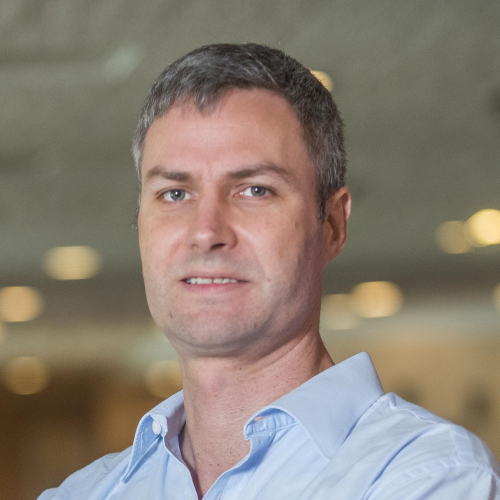
Anthony Partridge
Dr. Anthony Partridge is a Senior Principal Scientist at MSD Singapore where he leads programs in the early discovery space. Previously, he was Senior Director of Biology at Pharmaron Beijing where he led a team focused on assay development/validation, screening, and built a world-class compound management facility. As an In Vitro Pharmacology Capability Lead at Merck, he pioneered collaborative efforts with pharmacology-based CRO partners. Prior to this, he was a Senior Scientist in the Pharmacology group at Merck Montreal. Dr. Partridge began his industry based career at Élan Pharmaceuticals in San Francisco. He received his B.Sc. from the University of Guelph (1998), his Ph.D. from the University of Toronto (2003) and completed post-doctoral training at Scripps/UCSD (2003-2006).

Amit Choudhary
Amit grew up in a farmer’s family in India and like the other kids “in the hood”, his early career aspirations included joining the army or becoming a cricketer. Amit’s pre-doctoral studies at the Indian Institute of Science‒Bangalore (IISc) involved the total synthesis of natural products and protein folding studies. He was ranked among top 5 students nationwide in the entrance exams of IITs and IISc. In 2006, he moved to Univ. of Wisconsin‒Madison to pursue his graduate studies with Prof. Ron Raines. Amit’s doctoral thesis describes the discovery of a force (termed n→π* interactions) that is akin to the hydrogen bond in its quantum mechanical origin and widespread prevalence in biomolecules.
Amit got interested in infectious disease and diabetes on observing a rampant prevalence of tuberculosis-triggered diabetes in many Indian families, including his own. In 2011, Amit was elected as a Harvard Junior Fellow and hosted by Prof. Stuart Schreiber at the Broad Institute. Here, he decided to shift his research focus from quantum mechanical interactions to infectious disease and diabetes. In 2015, he was appointed as an Assistant Professor of Medicine at Harvard Medical School and he also holds appointments at the Brigham & Women’s Hospital and the Broad Institute. The efforts of Amit’s group have been recognized by Burroughs Wellcome Fund’s Career Award at the Scientific Interface, NIH Director’s Transformative Research Award, DARPA’s SAFE GENES award, Vilcek Prize for Creative Promise, and Juvenile Diabetes Research Foundation’s Innovation Award.
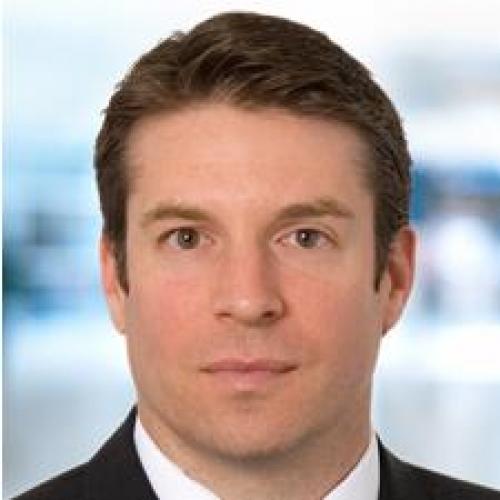
Matthew Tingler
Matthew is a Managing Director in Baird’s Investment Banking practice where he advises on equity offerings, mergers and acquisitions and other financial advisory services in the Consumer sector, with a focus on in the apparel & footwear, health, wellness & fitness and outdoor recreational categories. Prior to joining Baird, Matthew was an Associate in Merrill Lynch’s M&A Investment Banking practice. Previously he was an Associate in Citigroup’s Equity Research practice and a Manager in Ernst & Young’s Transaction Advisory Services practice where he performed M&A due diligence, restructuring and valuation assignments. Matthew received an M.B.A from the Kellogg School of Management at Northwestern University with distinctions and a B.S. in accounting and marketing with high honors from the University of North Carolina at Chapel Hill. He is a Chartered Financial Analyst charterholder through the CFA Institute and a recipient of the SGB 40 Under 40 award sponsored by SportsOneSource Group. Additionally, Matthew serves on the Leadership Council for A Better Chicago, a venture philanthropy organization dedicated to strengthening and scaling high performing nonprofits focused in the education sector for low income Chicagoans. He lives in Chicago with his wife and three sons.